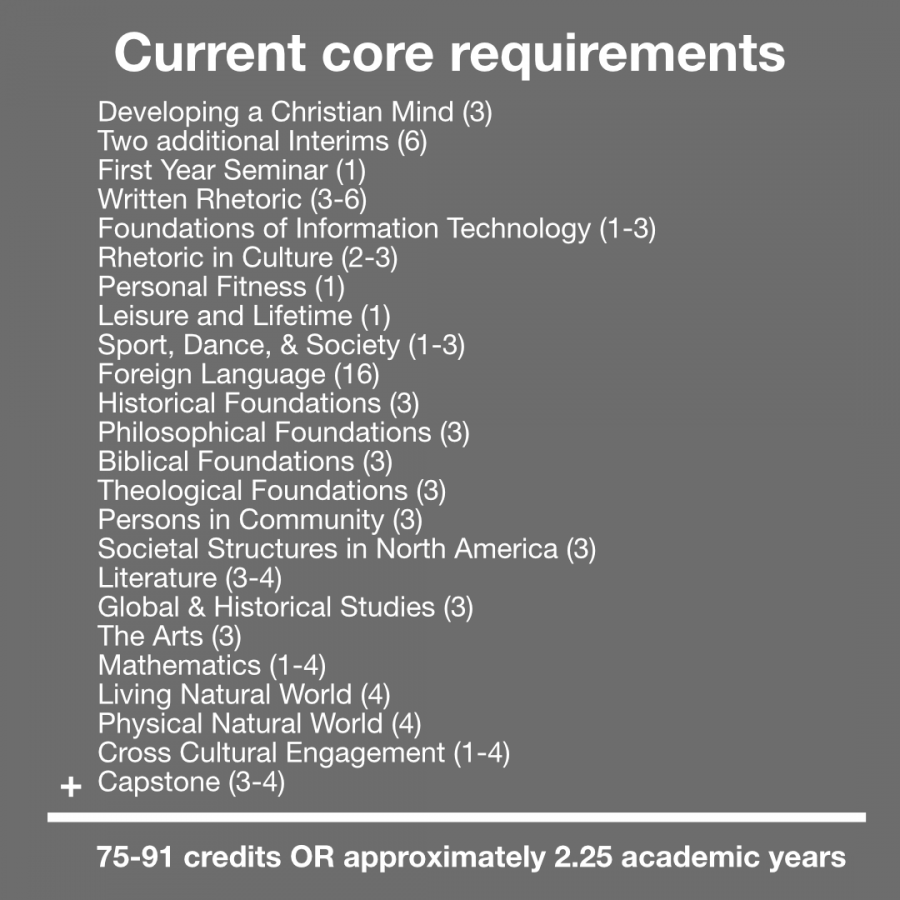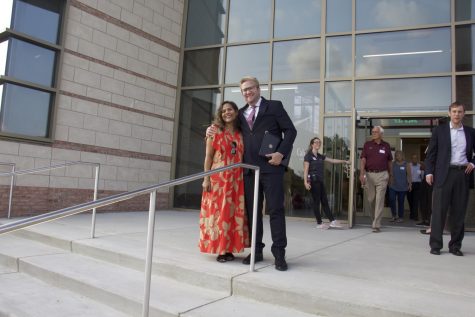Core curriculum vote delayed to late in semester
The faculty senate and faculty assembly votes on the new core curriculum originally scheduled for Sept. 30 and Oct. 15 will now take place on Nov. 17 and Dec. 9. respectively.
The University Core Task Force pushed back the dates because of the COVID-19 pandemic. According to Joel Westra, political science professor and member of the UCTF, the committee originally met once a week for three hours. After Calvin moved online, the committee met for only two hours weekly. Given the reduced pace and the difficulty of revising the core, Westra said the committee decided in August to push back the votes.
According to Westra, the vote before the end of the 2020 fall semester means that the new core will be in effect for the 2021-2022 academic year.
Last fall, faculty senate and faculty assembly approved a set of guiding principles and parameters for the new core.
The old core was too large, varied between different majors and made it difficult to transfer into Calvin, Westra said. “We remain committed to our work of recommending a new Calvin University core curriculum that is coherent and compelling, flexible and transfer-friendly, assessable and adaptive, persevering the wisdom of Calvin’s theological and educational traditions and responding to the contemporary educational context,” Westra said.
Currently, the UCTF has developed a maroon and gold model of core, which they presented for discussion at the Sept. 1 faculty senate meeting. The two models are similar but differ in size, foreign language and mathematical reasoning requirements, approach to global citizenship and number of interdisciplinary versus traditional disciplinary courses. Westra said that the UCTF will present one model of core to faculty senate which it will then revise in response to feedback. Following the revision, the task force will recommend it for approval to faculty senate and faculty assembly.
Calvin’s current core curriculum was approved in 2000. It takes roughly 2.25 academic years to complete. Attempts to revise it have been thwarted, most recently an attempt in 2016. In order to prevent this from happening again, faculty senate gave up power to the UCTF last year.
Westra said that he and other members are optimistic that faculty senate and faculty assembly will approve the new curriculum structure. “Faculty have recognized our responsiveness and shown confidence in our efforts thus far as we work together as a campus community to understand and address areas of divergence and ultimately to converge upon a single proposal,” Westra said.
The maroon model of core would require 41-44 credit hours, whereas the gold model would require 38-40 credit hours. The current model requires 75-91 credit hours.









Dr. Ralph W. Vunderink • Nov 17, 2020 at 9:42 pm
Dear Sir/Madam,
Being from the Netherlands, I followed a Gymnasium course of learning at my High School. The lanuage section included six years of Latin (reading Tacitus, Livy, and Caesar), five years of Greek (reading Homer, Herodotus, and Plato), and four years of German, French, and English. Within de European setting, all this was helpful.
Within our American world, learning Spanish makes genuine sense, and many students at our Aquinas College are taking it. Teaching a two-semester intro. Latin course at Aquinas has opened the eyes of several students of the many Latin roots in our English language.
Hope your new curriculum will keep some student exposure to languages.
p.s. Could you connect me with the Latin Section of the Language Department at Calvin. Interested in comparing the two departments. Ralph Vunderink